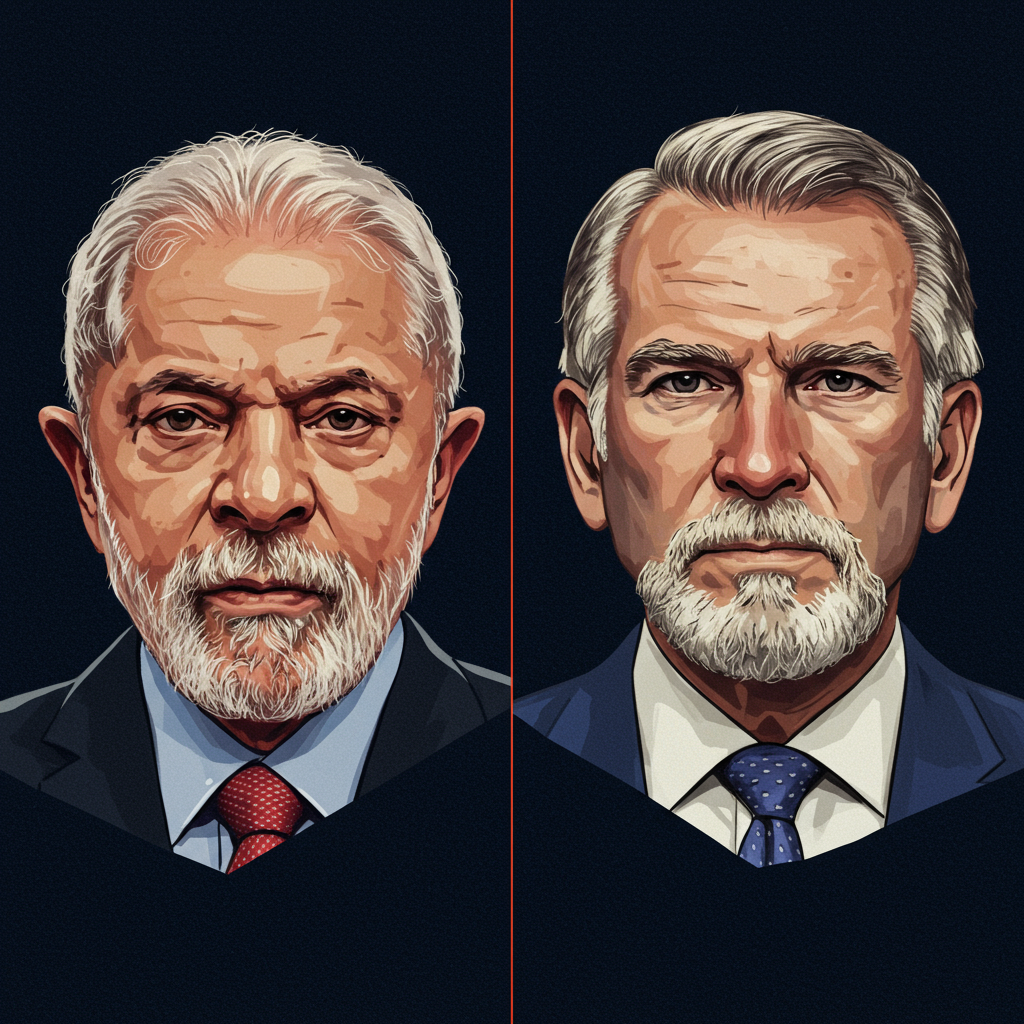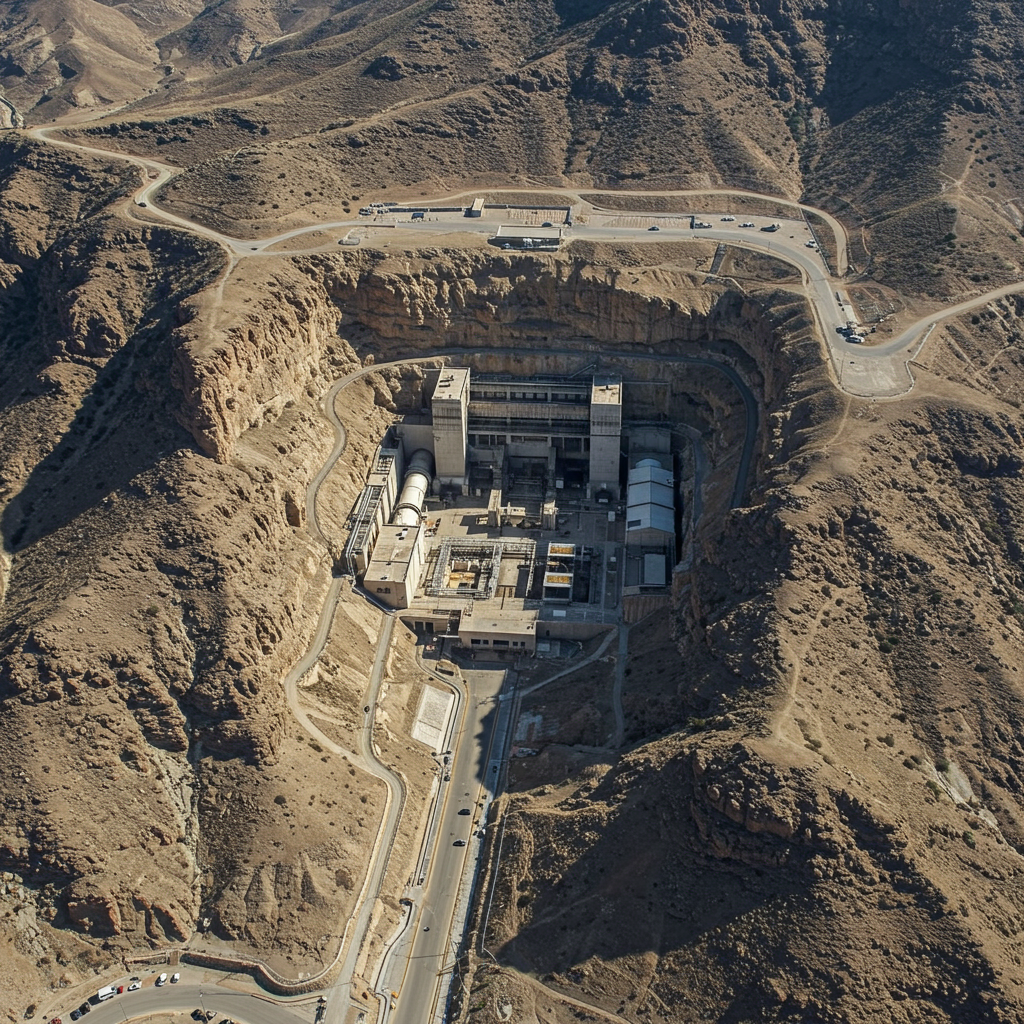A significant trade confrontation is escalating between the United States and Brazil. This potential economic clash comes after former U.S. President Donald Trump threatened to impose steep import taxes on Brazilian products. Brazilian President Luiz Inácio Lula da Silva quickly vowed a reciprocal response. He stated his administration is fully prepared to implement matching tariffs on American goods entering Brazil. This high-stakes exchange highlights underlying political tensions now spilling into economic policy. The core dispute involves both trade imbalances and controversial political matters. Experts warn that such measures could significantly impact the economies of both nations. Understanding the triggers and potential consequences is crucial for businesses and policymakers alike.
Trump’s Tariff Threat Targets Brazil
The recent tension began with a stark warning from Donald Trump. He issued a threat to apply a substantial 50% import levy on Brazilian items. This proposed tariff hike was scheduled to take effect starting August 1. Trump communicated this intent in a letter addressed to the Brazilian government. The letter outlined specific justifications for this aggressive trade posture. While Trump has often cited trade deficits as grounds for tariffs, his message to Brazil included broader, politically charged elements.
One primary reason cited by Trump was Brazil’s handling of former President Jair Bolsonaro. Bolsonaro, a political ally of Trump, is currently facing legal proceedings in Brazil. The trial centers on allegations that he attempted to stage a coup. These alleged actions followed his defeat by Lula in the 2022 presidential election. Trump expressed strong disapproval of the legal case against Bolsonaro. He referred to his ally as a “highly respected leader throughout the world.” Trump’s letter explicitly called for the trial to cease immediately. He described the proceedings against Bolsonaro as a “witch hunt.”
Trump’s public support for Bolsonaro is not unexpected. The two figures have long maintained a close political relationship. Trump had previously criticized Brazil regarding Bolsonaro’s situation. Just days before the tariff threat, he drew parallels between Bolsonaro’s legal challenges and his own legal battles in the United States. This suggests a deep connection between Trump’s political relationships and his trade policy decisions.
Beyond the Bolsonaro trial, Trump’s letter raised another point of contention. He accused Brazil of issuing “secret and unlawful censorship orders.” These orders allegedly targeted U.S. social media platforms. This claim appears linked to legal disputes involving U.S. tech companies operating in Brazil. Trump Media, the entity majority-owned by Donald Trump that runs Truth Social, is reportedly among the companies contesting Brazilian court rulings. These rulings have included orders to suspend specific social media accounts.
Brazil’s Swift and Forceful Response
President Lula da Silva’s reaction to Trump’s tariff threat was immediate and firm. He articulated Brazil’s stance through a series of public statements. Lula used the social media platform X to deliver a robust rebuttal. He emphasized Brazil’s status as a “sovereign country.” Lula also highlighted the independence of Brazil’s institutions. His message made it clear that Brazil would “not accept any tutelage” from external powers. This was a direct assertion of national autonomy in the face of foreign pressure.
The Brazilian leader went further, issuing a clear warning about potential countermeasures. He explicitly announced that Brazil would meet “any unilateral tariff increases” from the U.S. with equivalent reciprocal tariffs. This signifies a readiness to engage in a trade dispute if the U.S. proceeds with its proposed tariff hike. Reciprocal tariffs are a common tactic in trade conflicts. They aim to impose similar economic costs on the challenging nation.
President Lula also directly challenged one of Trump’s potential justifications for tariffs: the trade balance. Trump’s letter, while focusing heavily on political issues, likely included the standard U.S. rationale about trade deficits. However, Lula contested this point strongly. He asserted that Trump’s characterization of a U.S. trade deficit with Brazil was “inaccurate.” Lula’s claim aligns with available government data. U.S. government statistics for 2024 indicated a trade surplus for the U.S. with Brazil in goods. This surplus amounted to $7.4 billion, equivalent to approximately £5.4 billion.
The Significance of US-Brazil Trade Ties
The potential imposition of a 50% tariff looms large due to the economic relationship between the two countries. The United States holds a significant position in Brazil’s international trade. It is Brazil’s second-largest trading partner globally. Only China surpasses the U.S. in trade volume with Brazil. A jump from a typical tariff rate, often around 10%, to a staggering 50% would represent a massive increase. If implemented, such a drastic hike could severely impact Brazil’s export sector. This would undoubtedly hurt the South American nation’s economy.
Brazil is also a notable trading partner for the United States, although it ranks lower in overall importance. Brazil is the 15th largest trading partner for the U.S. The trade relationship involves a variety of key products. The U.S. primarily exports items such as mineral fuels, aircraft, and machinery to Brazil. In return, the U.S. imports goods like gas and petroleum products, iron, and coffee from Brazil. Disrupting this flow with high tariffs could harm industries in both countries.
The threat against Brazil was part of a broader communication from Donald Trump on that particular day. Letters warning of potentially higher levies were reportedly sent to numerous other nations. Japan, South Korea, and Sri Lanka were among the 22 countries receiving such warnings. However, the letter sent to Brazil was reportedly unique among these. It was the only one that ventured significantly into matters beyond alleged trade imbalances, focusing heavily on internal Brazilian political issues and legal proceedings.
Expert Analysis on Political Fallout
Political analysts have offered insights into the potential effects of this dispute within Brazil. Rafael Cortez, a political scientist at the Brazilian consulting firm Tendências Consultoria, suggested Trump’s approach might inadvertently benefit Lula. Cortez noted that the overly political tone of Trump’s letter, particularly his focus on the Bolsonaro trial, could backfire. He explained that leaders who are publicly confronted by Trump or other conservative figures often see a boost in domestic support. This phenomenon has been observed in other countries. Cortez cited examples in Mexico, Canada, and Australia where challenging Trump appeared to correlate with rising popularity for local leaders.
Another expert, Creomar de Souza from the political risk consultancy Dharma Politics, commented on Brazil’s necessary response. Speaking to BBC News Mundo, de Souza suggested Brazil needed a well-organized and unified approach to capitalize on the situation. He indicated that such a coordinated response would be necessary for the Lula government to “score a goal” against Trump, effectively turning the external pressure into domestic political advantage. The experts imply that the political dimension of Trump’s threat provides Lula with an opportunity to rally nationalistic sentiment.
The confrontation underscores the complex intersection of international trade, domestic politics, and legal systems. While tariffs are typically framed as economic tools, Trump’s explicit linkage of trade policy to Brazil’s internal legal processes represents an unusual step. It raises questions about the future of bilateral relations and the potential for political disagreements to trigger economic retaliation. The situation remains fluid, contingent on whether the threatened tariffs are actually implemented and how Brazil formally responds beyond initial statements.
Frequently Asked Questions
Why did Donald Trump threaten tariffs on Brazilian goods?
Donald Trump cited specific reasons for threatening a 50% tariff on Brazilian imports. In a letter, he focused on Brazil’s treatment of former President Jair Bolsonaro, calling for an end to his trial. Trump also alleged that Brazil had issued “secret and unlawful censorship orders” against U.S. social media platforms. These political and legal issues were presented as key triggers for the potential tariff increase, alongside potential trade concerns.
How did Brazil’s President Lula respond to the tariff threat?
President Lula da Silva issued a strong response. He emphasized Brazil’s sovereignty and the independence of its institutions, declaring Brazil would not accept external “tutelage.” Lula announced that Brazil would impose reciprocal tariffs on U.S. goods if the U.S. enacted its threatened unilateral tariff increases. He also challenged Trump’s assertion of a U.S. trade deficit with Brazil, presenting data suggesting a U.S. trade surplus in goods.
What is the current trade relationship between the US and Brazil?
The United States is Brazil’s second-largest trading partner globally, after China. Brazil is the 15th largest trading partner for the U.S. The trade includes U.S. exports to Brazil like mineral fuels, aircraft, and machinery. Brazil exports goods such as gas, petroleum, iron, and coffee to the U.S. While Trump’s administration potentially cited deficits, U.S. government data for 2024 indicated a U.S. trade surplus in goods with Brazil totaling $7.4 billion.
This developing situation between the U.S. and Brazil remains a critical point of observation for international relations and trade experts. The outcome could set a precedent for how politically motivated trade actions are handled between major economies. The potential for significant economic disruption requires careful monitoring.



